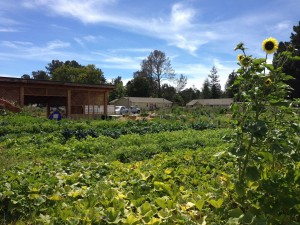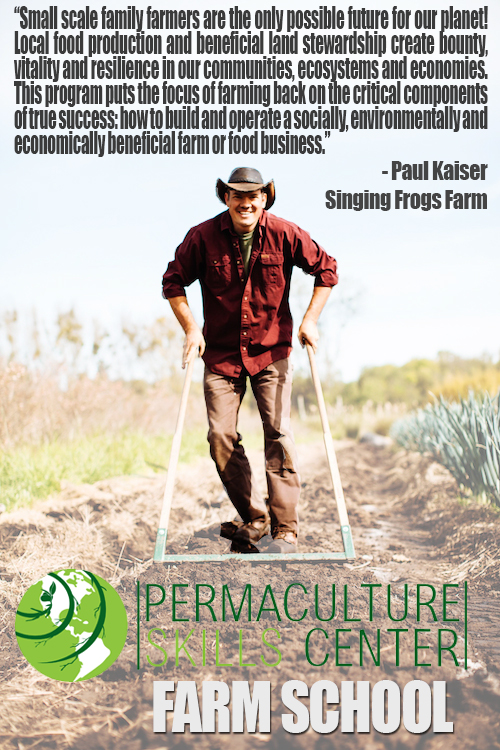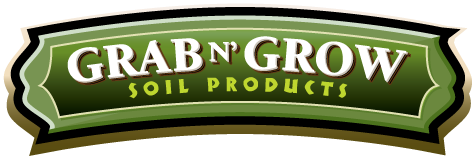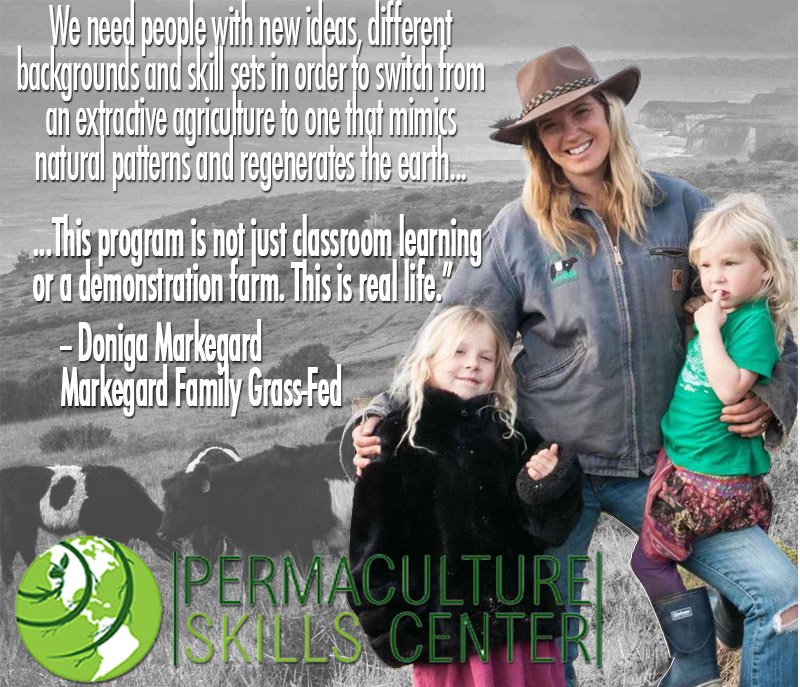The Permaculture Skills Center sits on five acres of land just south of Sebastopol and serves as a demonstration site and educational institution dedicated to sharing regenerative land development and management practices. This summer, however, is a special time for the Permaculture Center as they are just a few weeks away from launching their newest vocational training program: Farm School. This week, we sat down with Ryan Johnston, Program Director of Permaculture Skills Center, to learn more about their new teaching approach toward sustainable farming and business practices for the next generation of food producers in Sonoma County and beyond.
Shelby Harris: Tell us a little bit about the genesis of Farm School: how did it begin? What was the inspiration for starting the program here in Sonoma County?
Ryan Johnston: This has been at least five years in the making. The original creation can be accredited to three people: Penny Livingston from the Regenerative Design Institute, Erik Ohlsen who is the owner and director of Permaculture Skills Center and Miriam Volat, the Director of Farm School. They were all in this collaborative conversation about a program like Farm School taking root somewhere here in the North Bay.
It was born out of a realization that agriculture is the single most destructive land use on the planet right now, and so if we’re really going to really address the problem, empowering the next generation of the farming community with solutions is essential. In its application permaculture is often pigeonholed into landscaping at the front yard/back yard scale, however it can be incredibly valuable at the farm scale as well, especially to build resilience against drought and a changing climate.
In thinking about the use of permaculture folks often jump straight different farming techniques, asking whether they are or aren’t permaculture, and in doing so really miss the value the tool can provide. Permaculture is only one of the farming approaches or planning tools this program uses. Our goal is to offer an integrated understanding of many approaches such as Biodynamics, Organic, bio-intensive, conservation agriculture, Holistic Management and natural farming, and most importantly how they might fit together.

What does the structure of the Farm School look like? How long does the program take to complete?
Farm School is unique in the sense that it does not follow a typical academic timeline. Instead, Farm School starts with an 8-week intensive course and is followed by a guaranteed 6-month mentorship with a local farmer, wherever you plan to start growing, who directly aligns with your future business and farm goals. The course takes place on Sundays-Wednesdays during the 8-week intensive. These days are packed with learning for our students and involve everything from field trips to local farms for a first-hand look at a variety of operation models to business planning and farm design lessons at the Center. The current schedule for topics is:
[twocol_one]
Aug 16 – 19: Ecological Farm Design
Aug 23 – 26: Regenerative Water Systems for Food
Aug 30 – Sept 2: Soils and Fertility Cycling
Sept 6 – 9: Seeds and Planting your Farm in the Regional Economy[/twocol_one]
[twocol_one_last]
Sept 20 – 23: Crop Planning and Harvesting for Diverse Markets and Community Resilience
Sept 27 – 30: Land Access and Tools for Farming
Oct 4 – 7: Animals, Agroforestry and Integrated Farming
Oct 11 – 14: Energy, Weeds, and Growing Health[/twocol_one_last]

Does an individual need to meet certain qualifications to apply for Farm School?
Really great you bring that up because it’s something we chewed on for a long time. It came down to the fact that we believe a really rich program is made up of a whole spectrum of different folks. So with that in mind, the only base-line for entry into the program is that everyone must be serious about taking on farming as a part of their career, or at least serious about exploring the opportunity. We tried to really limit the barriers to entry for Farm School, so everyone is welcome to apply and go through the in-take interview process. The interview process is designed to make sure the program is a good fit for the individual applying, ensures sure that we’re going to deliver what they’re looking for, and verifies that everyone’s expectations line up since it’s a sizable commitment. If they do, pretty much anyone is welcome.
Who should look into applying? What type of person would Farm School appeal to?
The program was born out of an interest to help people align their passion with purpose and prosperity in their lives. That’s not to say that farming is an easy industry to make a lot of money in, but for folks who really want to turn this into their livelihood, that’s who this program was designed for. And it could be their full-time livelihood or could be starting a side business. A pattern that we see with the new generation of farmers is often one of starting food production as a side-business. Starting small, or growth by chunking, often times makes a whole lot of sense for people who are first-generation farmers. It’s a great way to get clear on what you’re really interested in and hone you’re model before going all in. A big part of Farm School is about supporting people to find focus and design a strategy for getting started in a way that fits their lives. There is no right or wrong way to get growing, though sustaining success is ultimately the test.
What type of industry leaders can Farm School students expect to learn from or encounter during their time in the program? Is the focus primarily on vegetable farming?
Recent UN reports point toward small and medium scale integrated farms as the farms of the future. This means farms that are growing many different types of crops and integrating animals into their farms as well are really the way forward for feeding the planet. Farm School is completely in line with that theory and approach, and one our instructors are passionate about teaching. Doniga Markegard, of Markegard Family Grass-Fed, will be the guest co-instructor for the animal raising sections. Doniga ranches over 8,000 acres and is a leader in grassland management and food systems here in the Bay Area.
Paul Kaiser from Singing Frogs Farms will be joining us for the entire soils week. Paul is truly a national leader right here in Sebastopol. Singing Frogs produces over 5 times the average amount of crops per acre (by weight) than the average farm in California, and they actually gross over $100,000 per acre. So he has a really dialed system that is super inspiring and he will be sharing that with our students. Other guest instructors include Hidei Herman from Strong Arm Farm and Scott Matheson from Laguna Farms. Additionally, Penny Livingston, who is internationally recognized as a prominent permaculture teacher, designer, and speaker will spend time with students on her 17 acre farm in Bolinas. Lastly, our core instructors are Miriam Volat as Farm School Director, Caiti Hachmyer of Red H Farm as our Practicum Track Lead Instructor, Kevin Bayuk as our Business Track Lead Instructor.
Farming and business are not often thought of in conjunction with one another. What is the approach to the business of farming at Farm School?
Any discussion about sustainable farming is incomplete without a discussion of financial sustainability, so business planning and skills training is large piece of the program. Too often individuals with a passion for growing food lack the tools to make informed decisions and create management systems that enable them to support themselves and continue the passion. We see this as a vital missing nutrient because if an individual cannot sustain themselves financially, then the continuation of ecological land management is often sacrificed as well. So our goal is help students find a way to design an enterprise that can sustain itself in perpetuity by coupling their passion for growing food with a sustainable business model. You often hear about non-profit and for-profit businesses, but at the Permaculture Skills Center we’re supporting the creation of more-than-profit businesses as drivers of positive change. Businesses that take a Triple Bottom Line approach which aim to steward the well being of people, planet, and profit. If you’re goal is to get rich, farming is a tough industry to do it. If your goal is to have purpose and support yourself by nourishing our communities with healthy food grown in a way that increases the health of the planet, then a farm business can be a pretty effective vehicle. These are the type of business plans that our students will design in Farm School.

How do you prepare your students to start the process of acquiring land after they complete Farm School?
We’re really fortunate to have the wonderful organization California Farm Link be integrated into Farm School. They show up in two different ways. The first way is by actually helping students craft lease agreements for potential landowners who want to lease their property – we have quite a land owners (in addition to the Farm Link list) who are excited to incubate farmers coming out of this program on their land in Sonoma County. Typically, an individual must have 2 years of faming experience to qualify for CA Farm Link assistance, but they have graciously waived that requirement for students who successful complete Farm School. They second way they integrate into our program is by offering small low-interest loans for students who complete Farm School. Additionally, Kevin Bayuk our Business Track Lead Instructor specializes in financing and access to capital, in all its many forms. There are so many new and creative avenues to fund your farming dreams, such as crowd sourcing and micro-loan programs, that Kevin will be teaching the students how to consider and use wisely.
Financially supporting yourself or your family while in enrolled in school can be difficult for many students. How does Farm School address this concern?
Yeah, it’s definitely tough and because of that we aim to make Farm School as accessible as possible for those individuals who are committed to this career choice. For example, we offer work trade positions that can help cut the cost of tuition almost in half. We still have a couple of those available so I would really encourage anyone who is interested in applying. Other options include flexible payment plans, or joining the program with your spouse or partner and splitting the cost between two individuals. We strive to make this a family friendly, multi-generational program since most successful farms are. We also provide housing support for folks coming from out of the area.
What can students expect to gain by the end of the Farm School?
At the end of Farm School, students will have received over 240 hours of programming over 32 days, not including the 6-month mentorship. They will leave the intensive with a guaranteed 6-month mentorship with a mentor who directly aligns with their goals and passions in the region where they want to start farming. Every student will also leave Farm School with a farm design and business plan along with access to capital and pathways for getting on land, plus a robust support network of peers and instructors for ongoing support.
If you are interested in applying to Farm School or know someone who might be, please visit their website by clicking here. There is still time left and spots available! Program starts August 16, 2015. For inquiries regarding applications, work trade positions, and housing please email Ryan Johnston at Ryan@permacultureskillscenter.org








 Family
Family

